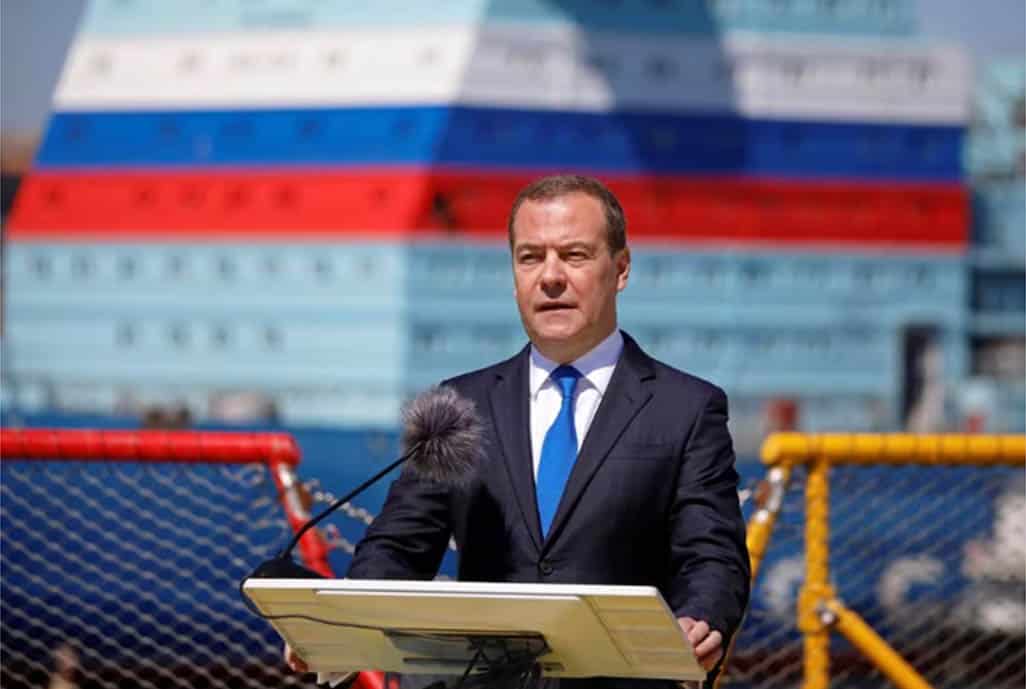Russian politicians gloated on Monday over heavy defeats for the parties of French President Emmanuel Macron and German Chancellor Olaf Scholz in European Parliament elections, and the Kremlin said right-wing parties were on the rise in Europe.
Former Russian president Dmitry Medvedev said the results reflected, in part, both leaders’ “inept policy” of backing Ukraine in the war with Russia.
“Time to retire. To the ash heap of history!” Medvedev posted on social media platform X.
Valentina Matviyenko, head of the upper house of parliament, said Macron and Scholz had “suffered a crushing defeat with their parties (that) once again confirms their failure as both national and European politicians.
“Moreover, in their case this is a well-deserved result, arising from many years of complete disregard for the real needs of people and society,” she wrote on Telegram.
Russia has long courted leaders on Europe’s political right such as Hungarian Prime Minister Viktor Orban and France’s Marine Le Pen, and is keen to exploit any signs of division in Europe that could weaken support for Ukraine.
Kremlin spokesman Dmitry Peskov said that after the EU elections, the majority in the European Parliament would still be pro-EU and pro-Ukraine, but the rise of right-wing parties was clear.
“This dynamic is visible to the naked eye and of course, despite the fact that the pro-Europeans retain their leading positions for the time being, over time the right-wing parties will step on their heels,” he said.
“We are closely tracking these processes.”
In France, Macron called an early parliamentary election, with the first round to take place on June 30, after his centrist party won less than half the share of Le Pen’s National Rally in the European voting.
Peskov said Russia would carefully monitor the snap vote, “especially taking into account, let’s say, the extremely unfriendly and even hostile attitude of the French leadership towards our country”.
Macron has riled Russia with a series of statements in recent weeks, including by floating the idea of sending European troops to help Ukraine in the war.
Ahead of the last French presidential election in 2022, Macron accused his rival Le Pen of being “dependent” on Russia and Putin, citing a loan her party obtained from a Czech-Russian bank.
Le Pen met Putin in the Kremlin in 2017, but since the start of the Ukraine war she has condemned Moscow’s invasion and tried to play down previous comments in which she expressed admiration for the Russian leader.






Click here to change your cookie preferences